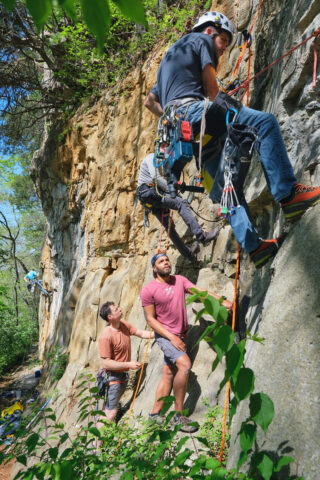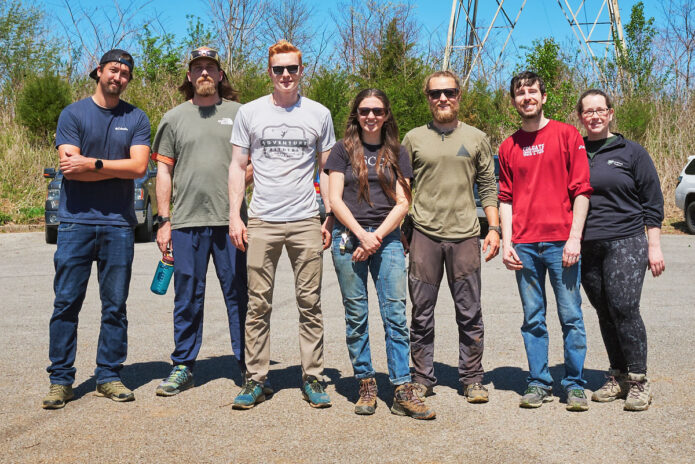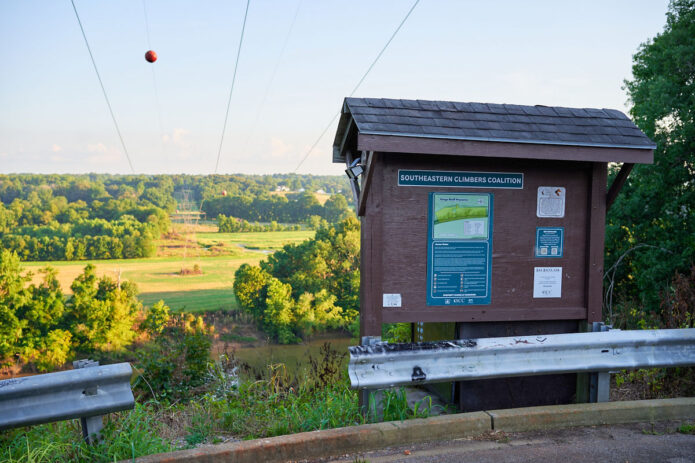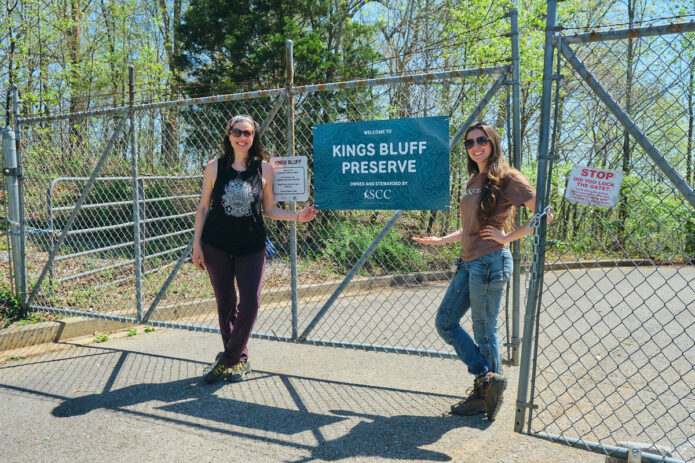Written by Jonathan Wheeler
 Clarksville, TN – When most people think of rock climbing, they think of intense adventures out to remote reaches of wilderness where people are going up vertical faces of cliffs spanning hundreds, even thousands of feet.
Clarksville, TN – When most people think of rock climbing, they think of intense adventures out to remote reaches of wilderness where people are going up vertical faces of cliffs spanning hundreds, even thousands of feet.
Some will think of the amazing endeavors performed by Alex Honnald such as his free solo ascent (climbing with no rope) up El Capitan in Yosemite National Park. But as amazing as these documented moments are, for most, rock climbing can be done in locations closer to us and not nearly as high up as what we see on TV.
As a matter of fact, would you believe that we have one such place right here in our own backyard? In the state of Tennessee, you will discover that most of the best crags are near Chattanooga or out in the Cumberland Plateau. However, the city of Clarksville is incredibly lucky to have its own outdoor crag right off Ashland City Road, called Kings Bluff Preserve.

Kings Bluff Preserve is an area tucked away behind a few warehouses and probably not as known as other outdoor locations in our town, such as Rotary Park or Dunbar Cave State Park. For those who have been there, you can overlook the Cumberland River from a huge bluff near the parking lot. It is no wonder that many people who know about this place truly cherish it.
However, this view isn’t what makes this natural area so special. It’s the fact that through the help of many volunteers, the efforts of local rock climbers, and a non-profit known as the Southeastern Climbers Coalition, we are able to have professionally bolted routes on the side of the cliffs to do a style of climbing called sport climbing.
Sport climbing requires two trained climbers to use a dynamic rope, quickdraws, and a belay device. With the rope tied correctly into their harness and the belayer on the other end of the rope, the climber moves up the wall placing quickdraws on bolts to protect them in the case of a fall and eventually making it to the top anchors of the route.
The SCC (Southeastern Climbers Coalition) is a huge reason for the cleanliness, upkeep, and rebolting that happens yearly at Kings Bluff. This non-profit thrives because of the efforts of locals and volunteers that want to keep this place special for generations to come. It was no surprise that when reaching out to the SCC for an interview, Kate Hanes, the SCC Interim Executive Director, was ready to answer and help inform our readers about what they do and the importance of Kings Bluff.
Kate, could you give us a brief introduction about yourself and who you are?
I’m the SCC Interim Executive Director. I am a climber, originally from Ohio but I now live in Chattanooga, TN. I have been working for the SCC in various roles since 2020.
Who are the SCC, and what do they do?

The Southeastern Climbers Coalition (SCC) is a 501(c)(3) nonprofit dedicated to preserving climbing areas in the Southeast for future generations. We are nationally recognized for our work as a land trust and climbing advocacy organization. Since 1993, we have protected over 900 acres of land in TN, AL & GA. Beyond our access and conservation initiatives, we operate as a platform for community, education, and social connection among regional climbers.
When did the SCC come to own Kings Bluff?
SCC acquired the 9.78-acre tract of Kings Bluff in 2002, thanks to the generous contribution of Drane Dickinson Lyttle and Howard Smith Dickinson, in memory of their grandfather, Howard L. Smith, and father, Joe T. Dickinson.
What makes Kings Bluff so special?

Kings Bluff is a unique local climbing area and due to the proximity to the city center and ease of access, the area is a refuge for both climbers and local community members. Located just an hour from Nashville, TN, Kings Bluff attracts a community of climbers from Nashville’s booming gym climbing scene and abundant university climbing clubs.
If you ask almost any local Nashville climber how they got into climbing, they will tell you a story of a friend taking them to King’s Bluff and how that experience changed their lives forever. On any given weekend, you’ll find loads of new and old climbers enjoying the bluffs and finding their own little bit of adventure. This beautiful limestone crag has over 160 routes traversing the Cumberland River and is one of 9 climbing areas owned and managed by SCC.
Some locals remember this area without a gate in the past. Why do we have the gate and is it open to the public?

The land had once been very troubled due to vandalism. Local climbers worked with SCC to mitigate those issues by conducting a graffiti removal trail day initiative and clean up, and installing a gate with a combination lock that users had to gain access to through the SCC website.
These efforts have helped slow down the recurrence of graffiti and trash. If folks would like to visit Kings Bluff, you can find access info on our website as well as rules for visiting the park.
How can we be better stewards of the climbing area and what are some of the biggest issues that Kings Bluff deals with?
Leave no trace! We are a small team of mostly volunteers. We ask that all visitors leave the place better than they found it. The biggest issues are trash, folks not understanding the gate code system, and destroying the locks.
How can we contribute to the SCC and Kings Bluff?
Donate and become a member, volunteer, and join our mailing list for future ways to get involved!
Disclaimer – Rock climbing is inherently dangerous and can lead to accidents, some fatal. Always seek skilled instruction before attempting to rock climb. It is never safe to climb without proper instruction on how to tie safety knots, use gear, and the correct way to sport climb inside or outside. The best local place to be introduced to climbing is to visit Nashville’s Climb Gyms West location.
More information about the SCC – www.seclimbers.org/project/kings-bluff/
To donate, become a member, or volunteer – www.seclimbers.org/donate/
To learn basic climbing and join a community of climbers – www.theclimbgyms.com/
For professional advanced instruction on outdoor climbing skills – www.spunkyadventures.org/



